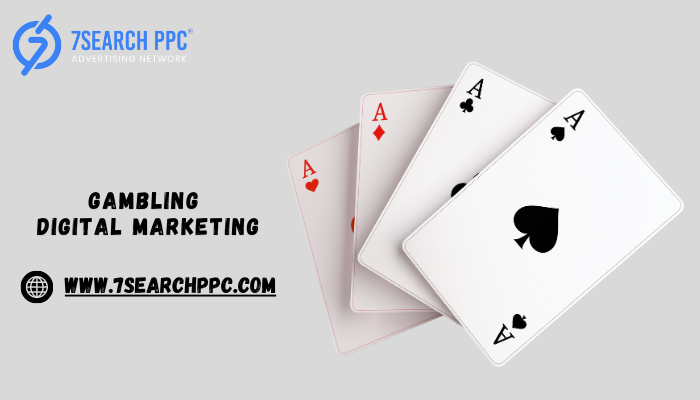In the dynamic landscape of the travel industry, where competition is fierce and consumer preferences are constantly evolving, tourism brands must leverage effective marketing strategies to drive growth. One such strategy that has proven to be particularly impactful is tourism PPC services. This article explores the intricacies of PPC advertising for tourism brands, how it can unlock growth, and the essential strategies to implement for maximum effectiveness.
Understanding Tourism PPC Services
What are Tourism PPC Services?
Tourism PPC (Pay-Per-Click) services refer to a form of online advertising that allows travel brands to display their ads on search engines and social media platforms. Advertisers only pay when a user clicks on their ad, making PPC a cost-effective solution for reaching potential customers who are actively searching for travel-related information or services.
The Importance of PPC for Tourism Brands
- Immediate Results: Unlike organic marketing strategies, which can take time to yield results, PPC advertising allows tourism brands to achieve immediate visibility in search engine results. As soon as a campaign is launched, ads can start appearing, driving traffic to your website.
- Targeted Audience Reach: PPC services offer advanced targeting options that enable brands to reach specific demographics, geographic locations, and user interests. This targeted approach ensures that your ads are seen by users who are most likely to convert.
- Measurable Performance: PPC advertising provides detailed analytics that allow tourism brands to measure the success of their campaigns in real time. Metrics such as click-through rates (CTR), conversion rates, and cost per acquisition (CPA) enable brands to assess campaign effectiveness and make necessary adjustments.
Key Components of Successful Tourism PPC Services
Comprehensive Keyword Research
Keyword research is the cornerstone of any successful PPC campaign. For tourism brands, identifying the right keywords is critical to attracting potential travelers.
- Focus on Long-Tail Keywords: Long-tail keywords are specific phrases that users are likely to search for when planning their travel. For example, “best family-friendly resorts in Hawaii” or “adventure tours in New Zealand” can drive highly targeted traffic to your website.
- Utilize Location-Based Keywords: Incorporate geographic keywords to reach travelers looking for services in specific areas. Keywords like “New York city tours” or “Florida vacation packages” can attract both local and international tourists.
Crafting Compelling Ad Copy
Effective ad copy is crucial for capturing attention and encouraging clicks. When crafting your ads, consider the following elements:
- Highlight Unique Selling Points (USPs): Clearly communicate what sets your travel brand apart. Whether it’s exclusive travel packages, personalized itineraries, or exceptional customer service, ensure your USPs are front and center in your ad copy.
- Strong Calls to Action (CTAs): Use persuasive language that motivates users to take action. Phrases such as “Book Your Dream Vacation Now,” “Explore Our Exclusive Deals,” or “Start Your Adventure Today” can significantly increase engagement.
Optimizing Landing Pages
Once users click on your ads, they should be directed to well-optimized landing pages that facilitate conversions. Consider the following aspects:
- Relevance to Ad Copy: Ensure that the content on your landing page aligns closely with the ad that brought users there. If your ad promotes a specific tour, the landing page should provide detailed information about that tour, including pricing, itineraries, and testimonials.
- User Experience: A clean and visually appealing design with intuitive navigation can enhance user experience. Make sure that your landing page is mobile-friendly, as a significant number of travelers use their mobile devices to search for information.
Utilizing Targeting Options
Tourism PPC services provide a variety of targeting options that can help you reach the right audience:
- Demographic Targeting: Tailor your ads based on user demographics such as age, gender, and income level. For instance, you may want to target families with children for family vacation packages or young adults for adventure travel.
- Geographic Targeting: Focus your ads on specific geographic areas to reach local travelers or international tourists interested in your destination. For example, you can target ads to users in countries or regions with a high interest in travel.
- Behavioral Targeting: Utilize data to reach users based on their online behavior. Target users who have previously searched for travel-related content or engaged with your website, helping to nurture leads and convert potential customers.
A/B Testing for Continuous Improvement
A/B testing involves comparing two versions of an ad or landing page to determine which performs better. This practice is crucial for optimizing your PPC ad campaigns.
- Ad Variations: Test different headlines, descriptions, and images to identify what resonates most with your audience. For instance, you might compare an ad featuring a luxurious resort with one showcasing an adventurous hiking trip.
- Landing Page Designs: Experiment with various layouts, colors, and CTAs on your landing pages. For example, you can test whether a prominent “Book Now” button or a more subtle CTA performs better.
Leveraging Advanced PPC Platforms
Google Ads
Google Ads is the most widely used PPC platform and offers a range of advertising options for tourism businesses. Key features include:
- Search Ads: These ads appear when users search for specific keywords related to travel. By bidding on relevant keywords, you can ensure your ads are displayed at the top of search results.
- Display Ads: Utilize visually appealing banner ads on websites across the Google Display Network. This strategy can help raise brand awareness and drive traffic to your website.
- Remarketing: Re-engage users who have previously visited your site but didn’t complete a booking. Remarketing ads can serve tailored messages to these users, encouraging them to return and finalize their purchase.
Social Media Advertising
Platforms like Facebook, Instagram, and Pinterest are powerful tools for tourism PPC services due to their visually-driven nature. Consider these tactics:
- Engaging Visual Content: Use high-quality images and videos that showcase your travel experiences. For instance, create immersive video ads that highlight breathtaking landscapes or unique cultural experiences.
- Audience Targeting: Leverage social media’s robust targeting capabilities to reach specific audiences based on interests, behaviors, and demographics. For example, target users interested in adventure travel, luxury getaways, or family vacations.
- Lead Generation Ads: Utilize lead generation ads to collect contact information from interested users, allowing you to nurture leads through email marketing campaigns.
Programmatic Advertising
Programmatic advertising automates the buying and selling of digital ads, making it an efficient option for tourism brands. Key benefits include:
- Real-Time Bidding: Programmatic advertising enables real-time bidding for ad placements, ensuring that your ads reach the right audience at the right time while optimizing costs.
- Audience Insights: Leverage data to create highly targeted campaigns that reach users based on their interests and behaviors. This approach can help you optimize your ad spend and improve campaign performance.
The Role of Analytics in Tourism PPC Services
Setting Clear Goals
Before launching your PPC campaigns, establish clear goals to measure success. Common objectives include:
- Increasing Website Traffic: Set targets for the number of visitors to your site resulting from your PPC efforts.
- Boosting Conversions: Define specific conversion goals, such as the number of bookings or inquiries generated from your ads.
- Maximizing Return on Investment (ROI): Monitor your ad spend in relation to the revenue generated from bookings to ensure your campaigns are profitable.
Utilizing Analytics Tools
Tools like Google Analytics provide valuable insights into your PPC campaign performance. Key metrics to track include:
- Click-Through Rate (CTR): The percentage of users who clicked on your ad after seeing it. A higher CTR indicates that your ads are compelling and relevant to your target audience.
- Conversion Rate: The percentage of users who completed a desired action after clicking on your ad. Monitoring conversion rates helps assess the effectiveness of your landing pages and overall campaign.
- Cost Per Acquisition (CPA): The average cost of acquiring a new customer through your PPC campaigns. Analyzing CPA can help you understand the profitability of your campaigns.
Making Data-Driven Adjustments
Use the insights gained from analytics tools to make informed decisions about your PPC campaigns. Regularly assess which ads, keywords, and targeting options are performing well and which may need adjustment. Continuous optimization is key to maximizing the effectiveness of your tourism PPC services.
Best Practices for Successful Tourism PPC Campaigns
Budget Management
Establish a budget for your PPC campaigns that aligns with your overall marketing strategy. Consider factors such as:
- Daily vs. Monthly Budgets: Determine whether you want to set a daily budget to control spending or a monthly budget for broader campaign management.
- Bid Strategies: Explore different bid strategies, such as manual bidding, automated bidding, or target CPA bidding, to maximize your ad spend.
Staying Updated with Industry Trends
The tourism industry is constantly evolving, and staying informed about the latest trends is essential for success. Regularly review industry reports, competitor strategies, and emerging technologies to adapt your PPC campaigns accordingly.
Customer Feedback and Reviews
Incorporate customer feedback and reviews into your advertising strategy. Positive testimonials can enhance the credibility of your brand and influence potential travelers’ decisions. Consider using user-generated content in your ads to showcase real experiences.
Seasonal Campaigns
Tourism is often seasonal, so consider launching campaigns that align with peak travel times or specific holidays. Tailoring your ads to capitalize on seasonal trends can enhance engagement and conversions.
Conclusion
Unlocking growth for your tourism brand requires a strategic approach, and utilizing tourism PPC services is an effective way to achieve this. By implementing comprehensive keyword research, crafting compelling ad copy, optimizing landing pages, and leveraging tourism PPC services, you can enhance your visibility and drive bookings.
Additionally, continuous analysis and adjustment of your campaigns will ensure that you stay ahead of the competition and maximize your return on investment.
As the travel industry continues to evolve, embracing the power of PPC advertising can be the key to scaling your travel brand and unlocking new growth opportunities in 2024 and beyond.
Frequently Asked Questions(FAQs)
What are tourism PPC services?
Ans. Tourism PPC services involve pay-per-click advertising strategies specifically designed for travel brands, allowing them to reach potential customers through online ads.
How do I choose the right keywords for my PPC campaigns?
Ans. Conduct thorough keyword research focusing on long-tail and location-based keywords that potential travelers are likely to use when searching for travel services.
What is the average cost of tourism PPC services?
Ans. Costs can vary significantly depending on factors such as competition, targeted keywords, and campaign goals. It’s essential to establish a budget and continuously monitor ROI.
How can I measure the success of my tourism PPC campaigns?
Ans. Utilize analytics tools to track key performance metrics such as click-through rates, conversion rates, and cost per acquisition to assess campaign effectiveness.
Can I run PPC ads on social media for my tourism brand?
Ans. Yes, platforms like Facebook, Instagram, and Pinterest offer effective advertising options for tourism brands, leveraging visual content to attract potential travelers.



